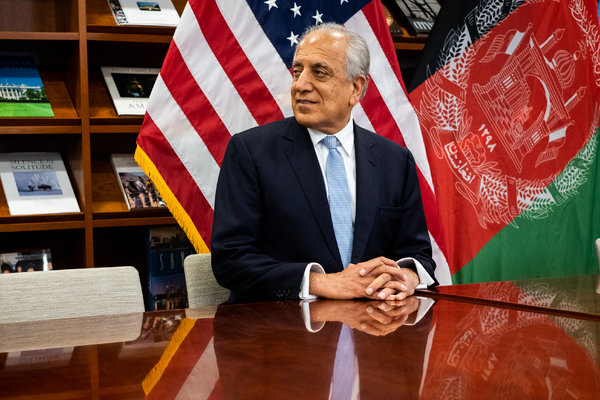News Analysis |
New York Times has reported that both the United States of America and the Taliban, parties to the ongoing dialogue vis-à-vis Afghanistan, have come to an agreement regarding the framework of an agreement. U.S special envoy for the process Zalmay Khalilzad has said that draft of framework needs to be fleshed out before it could become an agreement officially. It is certainly a breakthrough which has been achieved in the rigorous course of straight 6 days, a negotiation session which was originally planned for just two days.
There have been multiple developments in the dialogue process between the Taliban and the United States of America, and most of them have been stalemates. After the first round in the United Arab Emirates, Taliban refused to attend the second one scheduled in Riyadh, Saudi Arabia demanding that the venue should be shifted back to Doha where the group has a political office as well.
“The Taliban have committed, to our satisfaction, to do what is necessary that would prevent Afghanistan from ever becoming a platform for international terrorist groups or individuals,” he told the Times.
Later, a statement from U.S embassy in Kabul stirred another controversy which hinted at possible inclusion of the Afghan government in the process and the Taliban once again threatened to pull out. The venue was eventually moved back to Doha, Qatar where the second round between Zalmay Khalilzad and the Taliban delegation was in process and Mullah Abdul Ghani Baradar was announced as a chief negotiator by Taliban. And later, the story of a plausible agreement was broken by New York Times.
So far Zalmay Khalilzad has been the source of information for Kabul regime, regarding the ongoing developments, where he flies to Kabul after every meet up with the insurgent group to inform President Ashraf Ghani. Authorities in Kabul have repeatedly asked the Taliban to accept their inclusion into the dialogue process.
Read more: Taliban ‘too strong’ to enter peace talks with Kabul
Recently in a televised address, President Ghani once again urged the Taliban to be more accommodating in letting in the other Afghans – a reference for people currently in government. “I call on the Taliban to … show their Afghan will, and accept Afghans’ demand for peace, and enter serious talks with the Afghan government,” President Ashraf Ghani said.
No Safe Havens
It has been one of the most consistent demands on part of U.S that the Afghan land would not be allowed to be used once again for the safe havens to carry out attack on foreign countries, especially the United States. Zalmay Khalilzad has said that the Taliban have agreed to this concern and ensured that they would shun both Al Qaeda and ISIS.
Al Qaeda is no longer a united force with a charismatic leader in the form of Osama Bin Laden as it did in the past and Taliban share utmost animosity with the ISIS.
“The Taliban have committed, to our satisfaction, to do what is necessary that would prevent Afghanistan from ever becoming a platform for international terrorist groups or individuals,” he told the Times.
It is understandable since Afghanistan have suffered for the past 17 years for providing refuge and sanctuaries to the planners of 9/11. Al Qaeda is no longer a united force with a charismatic leader in the form of Osama Bin Laden as it did in the past and Taliban share utmost animosity with the ISIS. Rejoice at the U.S end is therefore logical and it also points out as to what Taliban are willing to commit in the “agreed framework” so far.
Read more: Taliban continue peace talks amid violence
But since Zalmay Khalilzad has said the withdrawal of troops and ceasefire would still take time to sink in and that matter is still under discussion, the uncertainty prevails as to what the United States willing to commit in the much talked about a framework of the agreement. Before the content of this framework is made public, it is hard to tell how helpful it is for the long-term goal of sustainable peace in Afghanistan.













